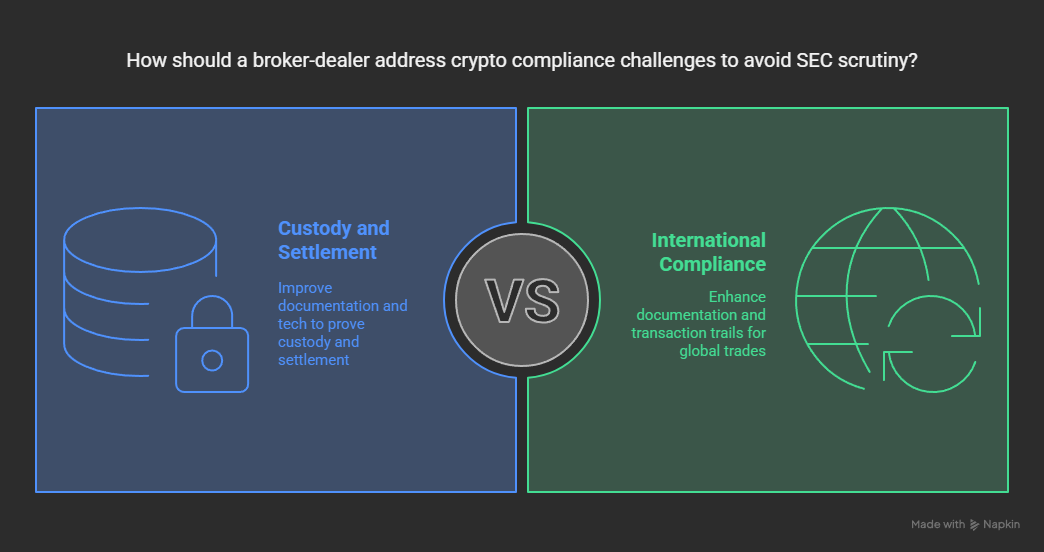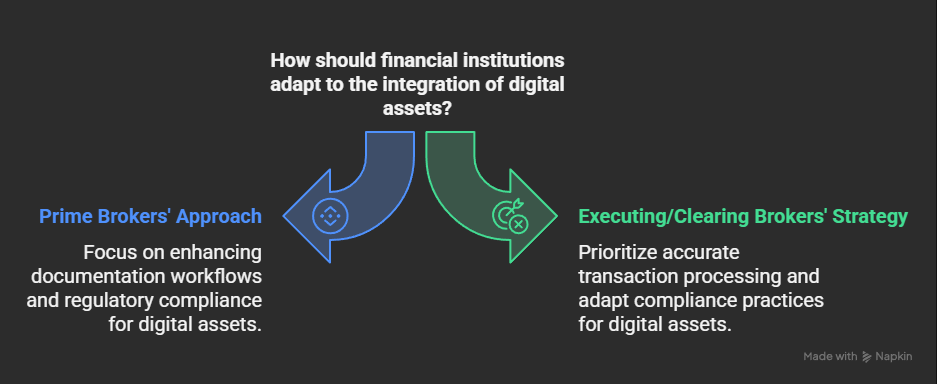Beyond the Checklist: How Robust Compliance Workflows Prevent Corporate Scandals
Prevent Corporate Scandals: Why Robust Compliance Workflows Are More Than Necessary
In the breakneck speed finance sector, compliance isn’t merely a term to throw around. It’s become the cornerstone of viability and success. With a history of corporate scandals laying bare the peril of non-compliance—ranging from crippling fines to devastating blows to reputation—there’s a clear, urgent need for solid compliance structures. This is where Loffa Interactive Group shines, bringing leading-edge solutions that empower financial services firms to wade through the murky waters of regulatory mandates without breaking a sweat.
For two decades, Wall Street’s big names have leaned on Loffa Interactive for tech solutions that not only streamline broker transactions but do so with an unparalleled commitment to security and operational prowess. Their stalwart reputation makes them the go-to experts in a field that’s as volatile as it is complex.
The Real Cost of Compliance Failures
The consequences of inadequate compliance frameworks extend far beyond the immediate financial penalties. Consider these sobering realities:
Financial Devastation
When a mid-sized investment firm failed to properly maintain electronic records in accordance with SEC Rule 17a-4, what began as a routine examination spiraled into a $15 million penalty. Beyond the fine itself, the firm incurred over $7 million in legal fees and spent thousands of staff hours reconstructing records that should have been readily accessible.
Reputational Collapse
A once-respected clearing broker saw its client base shrink by 40% in six months after compliance failures led to a three-week trading suspension. Despite resolving the regulatory issues, the reputational damage persisted, with former clients citing “compliance concerns” as their primary reason for not returning—even after all violations had been remediated.
Leadership Consequences
The C-suite is increasingly held personally accountable for compliance failures. In 2023 alone, 12 senior executives at financial services firms faced individual penalties averaging $250,000 each, with three facing criminal charges for willful neglect of compliance obligations.
The Hidden Operational Tax
Perhaps most insidious is the “compliance tax” organizations pay through inefficient, manual processes. A survey of mid-tier broker-dealers revealed that operations teams spend approximately 35% of their time on compliance-related activities—most of which could be automated with the right systems in place.
The Labyrinth of Regulations
The financial environment today is a dynamic beast, replete with evolving regulations that can feel like a minefield. From navigating the rigid paths of SEC Rule 17a-4 concerning electronic records to the clarity demands of the Dodd-Frank Act, firms find themselves in constant battle mode, ensuring every step taken is within legal bounds.
Regulatory Complexity in Action
Consider a typical prime brokerage relationship. At every stage, regulatory touch points create potential failure points:
- Client Onboarding: KYC/AML requirements, investor qualification verification, FINRA Rule 2090 (Know Your Customer) and 2111 (Suitability) compliance
- Agreement Management: SEC-mandated disclosures, customized margin requirements, default provisions that satisfy regulatory minimums
- Ongoing Supervision: Transaction reporting, position monitoring, margin maintenance, suspicious activity detection
- Dispute Resolution: FINRA-compliant communications, evidence preservation, timeline adherence
Each of these stages contains dozens of potential compliance pitfalls, any one of which could trigger regulatory action. Maintaining this complex web of obligations manually is virtually impossible without introducing human error.
Loffa Interactive’s arsenal, equipped with tools like Freefunds Verified Direct (FVD) and the Prime Broker Interactive Network (PBIN), simplifies this herculean task through intelligent automation and purpose-built workflows.
Freefunds Verified Direct (FVD): A Closer Look
FVD stands as a beacon for brokers, facilitating seamless management of Letters of Free Funds in adherence to Regulation T requirements. This gem of a tool automates balance verifications and refines trade settlement management. By stripping away layers of complexity, FVD virtually eliminates human error, guaranteeing a compliant, smooth-running operation.
FVD in Practice: A Case Study
Horizon Capital Partners, a mid-sized broker-dealer, processed approximately a 5,000 Letters of Free Funds monthly—each requiring multiple verification steps and status updates. Their manual process led to:
- 8% of letters containing verification errors
- 4% of trades facing settlement delays due to documentation issues
- 12 staff members dedicated solely to this process
- 3-day average processing time
After implementing Loffa’s FVD solution:
- Verification errors dropped below 0.3%
- Settlement delays from documentation issues virtually disappeared (less than 0.1%)
- Staff requirement reduced to 3 oversight positions
- Average processing time: 4 hours
The compliance benefits extended beyond error reduction. During a subsequent regulatory examination, Horizon provided complete audit trails for every Letter of Free Funds processed—something impossible under their previous system. The examination concluded with zero findings related to their funds verification process.
The Technical Edge
FVD’s effectiveness comes from its intelligent architecture:
- Smart Document Recognition: Automatically identifies and categorizes incoming Letters of Free Funds regardless of format
- Verification Automation: Integrates with clearing systems to automatically verify available balances
- Compliance Rule Engine: Applies the appropriate regulatory requirements based on transaction type, client category, and security characteristics
- Exception Management: Flags and routes exceptions to the appropriate teams with clear resolution paths
- Audit Trail Generation: Creates comprehensive, tamper-proof documentation of the entire verification process
For operations managers, this means fewer fire drills, reduced regulatory risk, and the ability to scale operations without proportionally increasing compliance overhead.
Prime Broker Interactive Network (PBIN): Simplifying Prime Brokerage
 PBIN emerges as the go-to platform for handling the intricacies of prime brokerage agreements and their associated documentation (F1SA, SIA-150, SIA-151). It’s been designed not just with simplicity in mind, but with a laser focus on ensuring regulatory compliance is met without friction.
PBIN emerges as the go-to platform for handling the intricacies of prime brokerage agreements and their associated documentation (F1SA, SIA-150, SIA-151). It’s been designed not just with simplicity in mind, but with a laser focus on ensuring regulatory compliance is met without friction.
The Prime Brokerage Challenge
Prime brokerage relationships create unique compliance challenges:
- Documentation Complexity: Agreements often run hundreds of pages with multiple addenda and custom terms
- Multi-Party Coordination: Executing brokers, clearing firms, custodians, and clients must all align
- Regulatory Overlay: SEC, FINRA, and international requirements must be satisfied simultaneously
- Ongoing Maintenance: Terms change, requiring version control and approval workflows
Traditional approaches involve endless email chains, version confusion, and approval bottlenecks that create both operational friction and compliance risk.
PBIN: Transforming Agreement Management
PBIN brings structure to this chaos through:
- Centralized Agreement Repository: Single source of truth for all prime brokerage documentation
- Workflow Automation: Customizable approval paths ensure the right people review the right sections
- Version Control: Complete audit history of all document changes with comparison functionality
- Regulatory Alignment: Built-in checkpoints ensure all required disclosures and provisions are included
- Multi-Party Visibility: Appropriate access levels for all stakeholders in the prime brokerage relationship
Real-World Impact
Atlantic Securities implemented PBIN after years of managing prime brokerage agreements through a combination of shared drives, email, and physical documentation. The transformation was immediate:
- Agreement processing time decreased from 3 weeks to 3 days
- Compliance exceptions in agreements dropped by 76%
- Staff time spent on documentation management reduced by 65%
- Audit preparation for FINRA examinations went from a two-week project to a same-day response
Perhaps most telling: when a regulatory inquiry arrived regarding specific agreement provisions across their client base, Atlantic produced a comprehensive report within hours—a task that would have previously required weeks of manual document review.
For prime brokers, executing, and clearing brokers, this means navigating the administrative quagmire becomes a walk in the park, while simultaneously strengthening their compliance posture.
Compliance: A Culture, Not a Checklist
The essence of compliance transcends ticking off a list. It’s about embedding a culture of transparency and integrity where each transaction and record stands up to scrutiny. This is Loffa Interactive’s true domain of expertise.
Beyond Software: Cultivating Compliance DNA
Successful compliance programs share common characteristics that extend beyond technologies:
- Leadership Commitment: Senior management visibly prioritizes compliance, allocating appropriate resources and leading by example
- Clear Accountability: Specific compliance responsibilities are assigned at every organizational level
- Continuous Education: Regular training keeps staff current on regulatory requirements and internal procedures
- Open Communication: Concerns can be raised without fear of retaliation, with clear escalation paths
- Regular Assessment: Compliance programs undergo scheduled evaluations to identify and address gaps
Loffa Interactive’s platforms support these cultural elements through:
- Role-Based Permissions: Clearly delineating compliance responsibilities within workflows
- Embedded Training: Context-sensitive guidance integrated into everyday processes
- Exception Highlighting: Automatic flagging of potential compliance issues for appropriate review
- Continuous Improvement: Analytics identifying process bottlenecks and compliance weak points
By tailoring solutions to the unique ecosystem of each client and keeping their finger on the pulse of regulatory evolution, Loffa Interactive ensures your compliance framework is not just current but also conducive to operational efficiency.
The Competitive Advantage of Compliance Excellence
Forward-thinking firms recognize that robust compliance isn’t merely defensive—it creates strategic advantages:
- Client Confidence: Institutional investors increasingly include compliance infrastructure in their due diligence
- Operational Efficiency: Well-designed compliance workflows reduce friction and enable faster scaling
- Regulatory Relationships: Firms with strong compliance histories face less scrutiny and faster approvals
- Talent Attraction: Top professionals prefer organizations where compliance protects both the firm and them personally
When Compliance Fails: Cautionary Tales
The financial industry’s history is littered with cautionary tales of compliance failures:
The Paper Trail Nightmare
A regional broker-dealer maintained proper records—but in disparate systems with no cohesive retrieval mechanism. When regulators requested specific transaction documentation during an examination, the firm’s inability to produce records promptly escalated a routine review into a formal investigation. Though the transactions themselves were compliant, the documentation failures resulted in a censure, fine, and years of heightened scrutiny.
The “Just This Once” Cascade
At another firm, an exception to the standard margin requirement was granted for a valued client “just this once” without proper documentation or approval. This seemingly minor compliance deviation established an informal precedent, leading to dozens of similar exceptions. When market volatility spiked, these exceptions resulted in significant losses and ultimately regulatory intervention.
The Training Gap
A well-respected investment firm hired experienced professionals but provided minimal training on the firm’s specific compliance procedures. During a routine FINRA examination, staff provided inconsistent explanations of compliance processes, triggering deeper scrutiny that revealed numerous procedural gaps.
The Common Thread
In each case, the foundation of these failures wasn’t malicious intent but rather inadequate systems, inconsistent processes, or insufficient oversight—precisely the vulnerabilities that Loffa Interactive’s solutions are designed to address.
Building Your Compliance Fortress
 In a world where corporate malfeasance headlines are all too common, the significance of a robust compliance workflow can’t be overstated. The path to compliance excellence includes:
In a world where corporate malfeasance headlines are all too common, the significance of a robust compliance workflow can’t be overstated. The path to compliance excellence includes:
- Assess Your Current State: Honestly evaluate existing compliance processes, identifying manual touchpoints and potential failure points
- Prioritize High-Risk Areas: Focus initial improvements on areas with the greatest regulatory exposure
- Leverage Technology Strategically: Implement solutions like Loffa Interactive’s that address specific compliance challenges while improving operational efficiency
- Measure and Refine: Establish compliance performance metrics and continuously improve processes
Partnering with Loffa Interactive not only equips financial services firms with the tools and support to navigate complex regulatory territories but also plants their feet firmly on the ground of trust and reliability among clients and stakeholders.
Conclusion: From Compliance Burden to Strategic Asset
The journey through the evolving landscape of financial regulations and the imperative to maintain a stalwart compliance framework has never been more critical. Firms face a choice: treat compliance as a necessary burden or transform it into a strategic advantage.
Those choosing the latter path recognize that well-designed compliance workflows don’t just prevent problems—they create efficiencies, build confidence, and enable growth. By automating routine compliance tasks, ensuring consistent application of policies, and maintaining comprehensive audit trails, firms free their professionals to focus on value-adding activities.
Loffa Interactive stands ready to guide firms to not just weather the storm of compliance but to forge it into a strategic advantage, letting them focus on their core mission: serving their clients and catalyzing growth. With compliance not a burden but a beacon, Loffa Interactive positions your firm to not just survive but thrive in today’s complex regulatory environment.
Interested in transforming your compliance operations from a burden to a competitive advantage? Contact Loffa Interactive today to discover how our purpose-built solutions can strengthen your compliance posture while enhancing operational efficiency.



 Enhanced Monitoring and Reporting
Enhanced Monitoring and Reporting While Loffa’s technology provides powerful tools for AML compliance, successful programs also require attention to human factors:
While Loffa’s technology provides powerful tools for AML compliance, successful programs also require attention to human factors: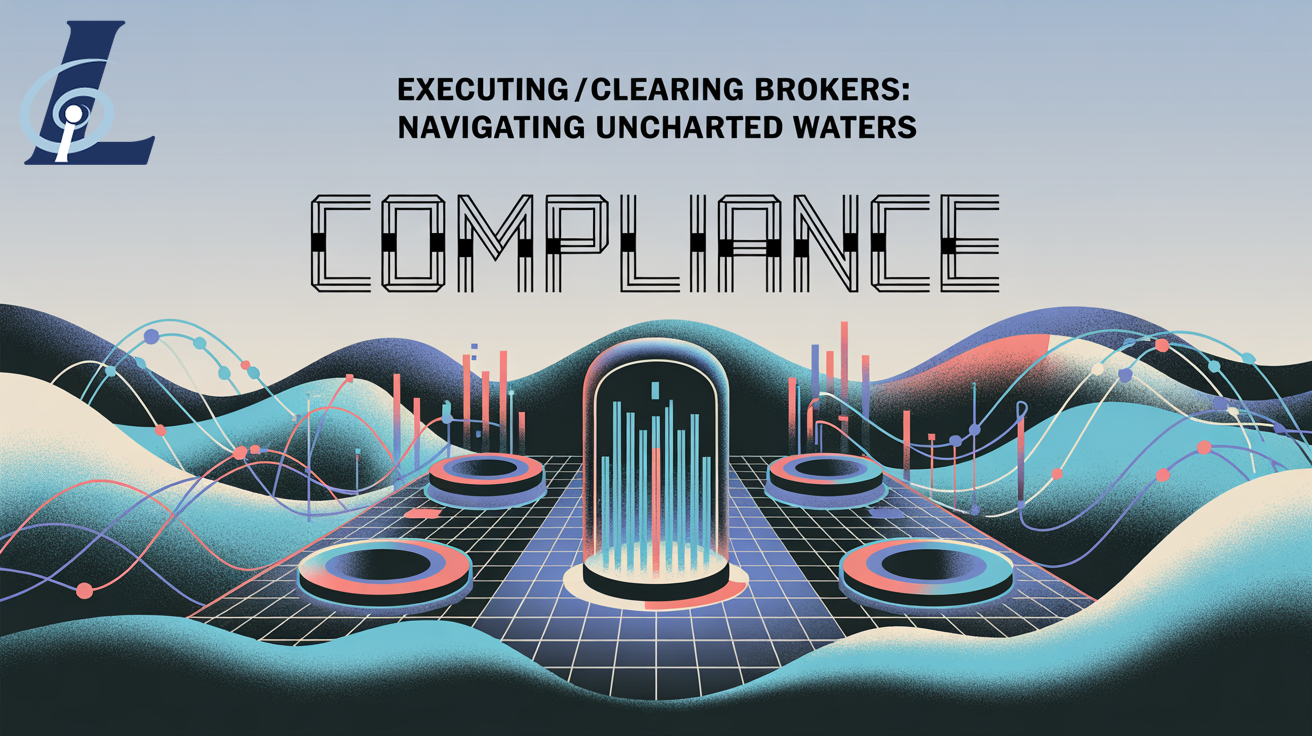
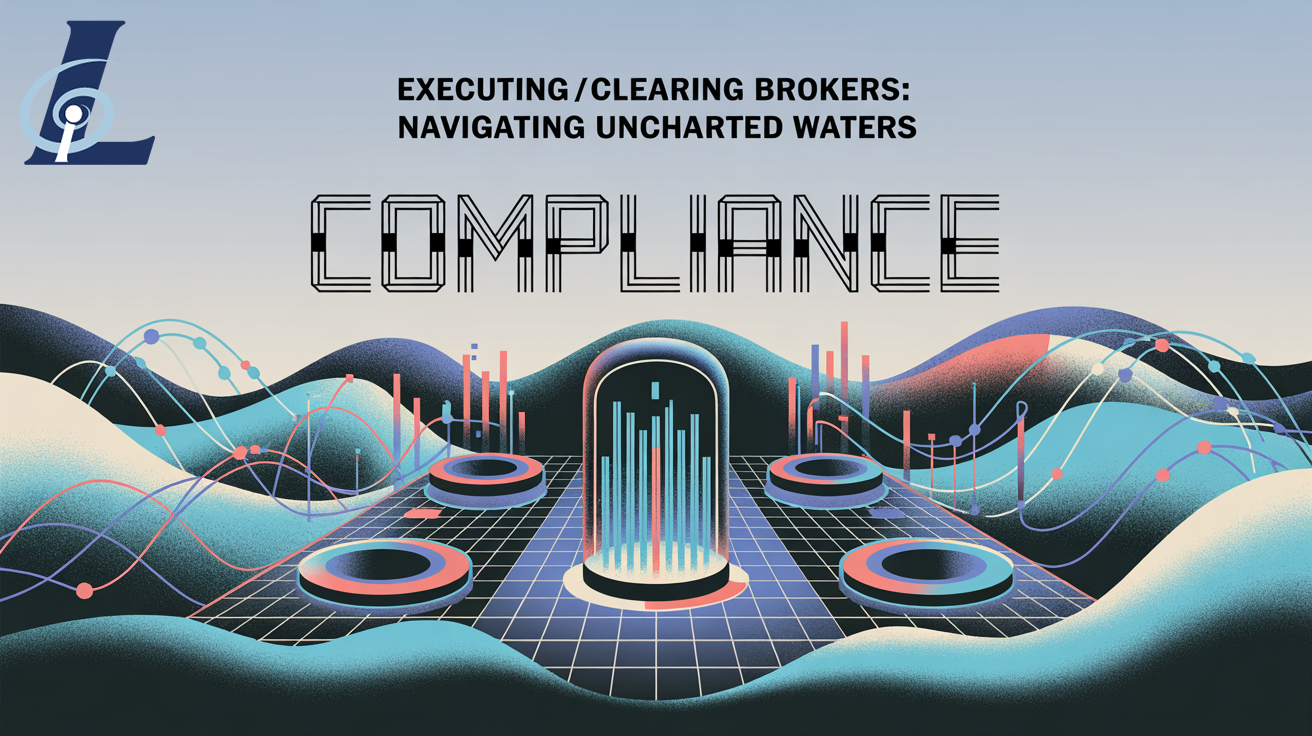 Understanding the SEC’s Enforcement Evolution
Understanding the SEC’s Enforcement Evolution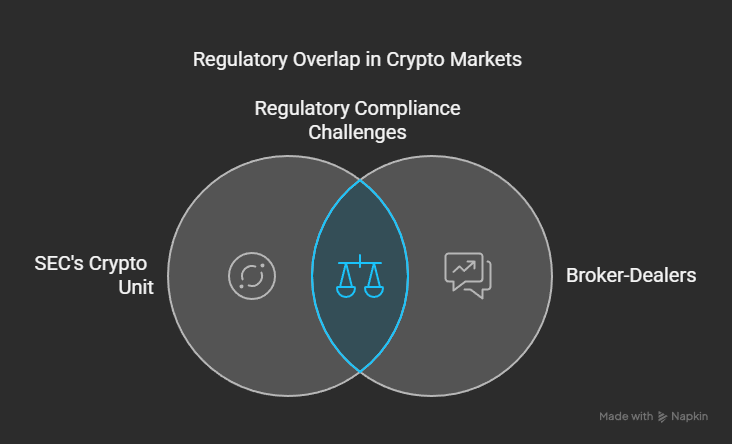 Scenario Spotlight
Scenario Spotlight